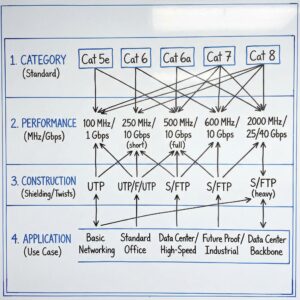
What Makes a Good Online Poker Player

To win in online poker, you need key parts that set good players apart. These are top skills, using the best data tools, and keeping a clear mind.
Skills and Tools
- Top players know the software well and use leading tracking tools to keep ahead. Watching money is key, with 20-30 buys for cash games 토토사이트 suggested.
Tips for Top Play
- Playing many tables while choosing wisely shows great skill.
- Knowing digital bet trends and player habits from data helps with strategy changes.
- Good players always update their tactics with new data and game changes.
Mind Power
- Staying in control and focusing well is key for steady wins in online poker.
- The best players are careful, adapt well, and make choices under pressure without quick decisions when winning or losing.
These parts, with ongoing study and tweaks, lead to a plan for steady success in online poker.
Rules for Money
- Smart money use comes from three key rules every top poker player should know.
- Having enough buys for your game kind is key: 20-30 buys for cash games, 50-100 buys for contests.
- For $1/$2 cash games with $200 buys, you should have $4,000-$6,000.
Money Safety
- Choosing the right stakes goes beyond just numbers.
- Smart money plans need strong will and good plans.
- Changing up your stakes when losing or making bad choices keeps your money safe.
- Keeping your poker money separate from daily cash helps safe play and stops big losses.
Dealing with Ups and Downs and Tracking
- Systematic tracking of poker games gives needed data for top money use.
- Watch win rates across stakes and games to spot strengths.
- Act fast to stop bad trends, like lowering stakes and picking games wisely.
These plans keep your money safe while making you better in cash games and contests.
Knowing Digital Signs and Timing
Guide to Digital Signs in Online Poker
Timing and Betting Patterns
- Digital signs in online poker offer clues that can big boost your chance to win.
- In online games, unlike at table games, clues come through bet patterns and timing actions, showing player hand strengths and plans high payouts
Main Digital Tell Signs
- Quick choices often show planned actions or weak hands.
- Long thoughts might mean unsure choices with so-so hands.
- The same timing could tell of bot use.
Observing Betting Behavior

- Fluctuations in bet size show hand strength.
- Common plays show planned plans.
- Changes after bets imply tough choices.
Watching foe actions in different times is key when using timing tells.
- Quick changes in normal patterns, like a usually fast player pausing, often mean unsure players.
- Pre-flop raises and post-flop betting speed give more clues at high levels where players use tricky plans.
Effective Use of Digital Tells
- Close watch on player habits.
- Spotting patterns over many games.
- Using timing tools.
- Linking bet sizes with choice speed.
This planned method turns basic timing data into plans, making more money in online poker.
Advanced Stats Skills
Stats for Winning in Online Poker
Main Stats Concepts
- Stats analysis is basic for good online poker play.
- Key math ideas like expected value (EV), pot odds, and implied odds make winning plans.
- Quick math with these measures while playing is key to get good.
Main Focus in Stats
Analysis of Probability Spread
- Knowing hand ranges and their chances helps good choices in all game times.
- Knowing spread models tells of foe moves and changes bet plans as needed.
Managing Variance
- Money plans lean a lot on getting stats variance.
- Checking losing runs and changing win rates helps keep calm in sure low points.
Analyzing Winning Performance
- Checking performance over game kinds and stakes gives needed clues for plan tweaks.
- Ongoing review of long-term results shows the best plans and winning chances.
Tracking tools give needed clues for game changes through needed stats:
- VPIP (Voluntarily Put Money in Pot): Shows playing style and choices.
- PFR (Pre-Flop Raise): Stands for pre-flop push.
- AF (Aggression Factor): Tells of action after the flop.
Checking these core measures helps spot needed tweaks for different table times.
Consistent watch of these stats leads data-led betterment and stops costly mistakes.
Keeping Cool Under Pressure
Staying Calm in High-Stakes Poker
The Base of Steady Wins
- Emotion check is key for long poker wins, mainly during big choice times that can hugely change one’s stack.
- Even top players can mess up their game when feelings cloud clear thinking, mainly after big losses or long losing runs.
Effective Emotion Handling
- Setting Up Reply Plans
- Keeping a steady mind needs a plan for emotion handling.
- For early signs of tilt, lower stakes or take set breaks.
- Stick to set loss limits to stop mind breaks during play.
Addressing Triggers
- Make set replies for main emotional pulls.
- After losing many pots, stick to your plan no matter past results.
- Skip in-game chat.
- Write down feeling states and choice quality through sessions.
Getting better involves fully splitting feelings from logical choices.
Regular checking of feeling trends through detailed session notes helps ongoing betterment in mind strength and overall poker performance.
Deep Emotion Plans
- Make a strong emotion check plan through:
- Planned money handling.
- Reasoned choice-making ways.
- Set break plans.
- Game tracking tools.
Putting these plans in helps keep a long-term edge and lets for top decision-making under pressure.
Making Multi-Table Plans Better
Best Ways for Multi-Table Play in Online Poker
Picking Tables and Making Them Better
- Good multi-table play needs smart plans to boost money made each hour.
- This starts with smart table choices and right setups.
- Lining up tables in a grid keeps a clear view of needed details like player stack and betting moves.
Maximizing Table Play
- Start with 2-4 tables at once and slowly add more.
- Use set hotkeys and make betting controls the same across all tables.
- This planned way lets big scaling while keeping sharp choices across many games.
Better Decision-Making
- The table pick is key when playing many games.
- Go for high-value chances and make quick moves for iffy hands.
- Use HUD stats and color plans to watch foe moves and trends well across tables.
Watch game stats to find your best table count.
- The aim is to find a good mix of game number and winning chance to boost money made each hour.
- If choice quality drops, cut the table count to keep making money.
- Track win rates right across different table setups to spot ideal setups.
Key Play Measures
- Always the same table spots.
- Choice speed.
- Win rate per table.
- Total money made each hour.
- Focus time.
- Use of HUD info.
Changing to Platform Needs
Key Platform Needs in Online Poker
Getting Platform Needs
- Online poker spots got special parts needing plan changes for best play.
- Spot needs like set hotkeys, bet-size picks, and table setups are key for quick moves and fewer mistakes in key hands.
Key Platform Parts and Data Use
- Different poker spots offer clear gains through rare parts.
- Leading sites got big player groups and easy color plans for foe watching.
- Handling many tables changes a lot, with some spots having tight table views and falling setups for smooth moving.
- Trying these parts in practice times is key before moving to real-money games.
Timing Plans and Game Handling
Bank Time Plans
- Timing plans are key for mastering game play.
- Platforms offer different ways for decision time use and time bank gathering.
- Getting these platform parts is key when handling many tables.
Data Tools and Trend Study
Built-in data tools change a lot across platforms, including note-taking and hand history handling systems. These parts are key for deep game study and trend spotting.
Continuous adapting to platform updates keeps plan freshness and makes sure of competitiveness in the always-changing online poker world.
Data-Led Decision-Making
Making Data-Led Choices in Online Poker
Using Data for Strategy Gain
- Expert poker players use deep data study to keep an edge in online play.
- Tracking tools and Heads-Up Displays (HUDs) give real-time looks into foe moves.
- Key measures like VPIP (Voluntarily Put Money in Pot), PFR (Pre-Flop Raise), and Aggression Factor (AF) show needed patterns spotting player kinds and weak spots.
Informed Play Study
- Complete play tracking sets the base for smart poker plans.
- Checking win rates over different stakes, types, and times supports smart choices.
- Regular looks at big win and loss times spot key patterns and chances for getting better.
Top players often study hand histories to find top choice times and likely plan changes.
Deep Foe Study
- Analyzing foe habits gives clear gains in usual games.
- Key measures are pre-flop raising rates, river pushing, and setting choices.
- While numbers lead smart choices, good use needs mixing data with live watching and plan changes.
This full approach to data-led play boosts making money in online poker spots.



